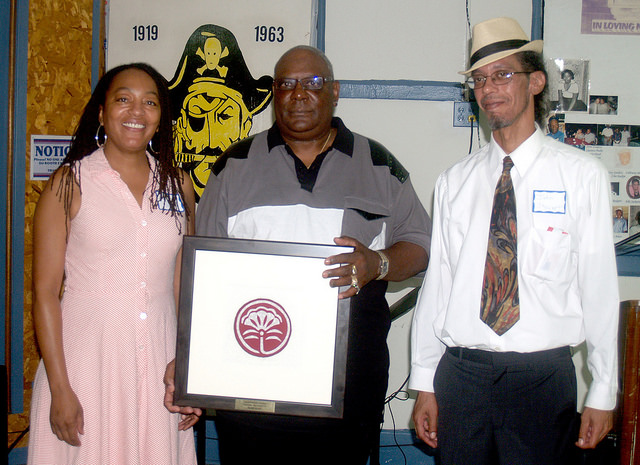October 6, 2014
ThinkProgress
Appalachia’s coal communities are confronting a confluence of market factors that are years in the making. This issue brief discusses some of the market challenges companies in the Appalachian coal industry face.
September 21, 2014 at 12:13pm
KFTC member Stanley Sturgill was one of the speakers representing frontline communities who spoke today at a press conference kicking off the People's Climate March in New York City. Here is his statement:
September 20, 2014 at 09:44am
Eastern Kentuckians participating in this weekend’s People's Climate March in New York City are carrying a clear message: We are at the forefront of the transition away from coal and we need to be put first as we go about building a new economy.
 For Kimberly Shepherd, it’s about her daughter and her future. She is working toward a just economic transition so she can keep her family in the mountains.
For Kimberly Shepherd, it’s about her daughter and her future. She is working toward a just economic transition so she can keep her family in the mountains.
“The solution is complicated. I don't think that there's one thing that can fix it, it'll take a lot of different things. But the resource we really have in Harlan County is our people and community,” said the Harlan County student and mother.
September 15, 2014 at 01:56pm
Two long-time KFTC members have been honored by the Appalachian Community Fund as Eastern Kentucky Appalachian Heroes.
About 80 people gathered on Friday, September 12, at the Eastern Kentucky Social Club in Lynch to honor Bennie Massey and Stanley Sturgill for their contributions to their community.

Both Sturgill and Massey live in Lynch and have been instrumental in efforts to protect their community from the impacts of coal mining and build a brighter future in the mountains. They are long-time members of the Harlan County chapter and have given their time and energy to other KFTC campaigns both inside and outside their region.
September 5, 2014 at 08:53pm
The Beshear administration this week issued two new general permits for coal facilities that fail to fully address the ongoing and substantial harm to humans and aquatic life from polluted mine wastewater.
August 20, 2014
Lexington Herald-Leader
Federal appeals judges have dismissed a coal industry complaint challenging a rule that the U.S. Mine Safety and Health Administration has used in stepped-up enforcement against coal mines accused of having poor safety records and a pattern of violations.
August 11, 2014
Lexington Herald-Leader
The statistical evidence of mining-related cancer and birth defects, along with the public concern, should serve to remind us: If Eastern Kentucky is to have a future, the places where people live, work and recreate cannot be sacrificed to an industry on its way out of the region.
July 31, 2014
Insider Louisville
A new, extensive Government Accountability Office study of the EPA’s hydraulic fracturing regulations says they need to be updated and are insufficient to ensure the safety of drinking water. To make these conclusions the GAO studied tracking practices in eight states, including Kentucky.
July 31, 2014 at 12:26pm
Over the next few weeks we will share some of the powerful public statements made by Kentuckians to the U.S. Environmental Protection Agency about the agency's proposed Clean Power Plan to limit carbon pollution from existing power plants. Below is testimony given at a hearing yesterday in Atlanta, Georgia by Joni Jenkins, who represents Kentucky's 44th House District in the state legislature.
Thank you for the opportunity to speak today. My name is Joni Jenkins and I represent Kentucky House District 44 in the Kentucky General Assembly. The 44th district is South of the Louisville, right on the banks of the Ohio River.
It is home to hard working, mostly blue collar, workers who strive everyday to raise their children for a brighter future. The 44th District is also home to 2 coal fired power plants with 2 coal ash landfills and coal ash ponds.



 For Kimberly Shepherd, it’s about her daughter and her future. She is working toward a just economic transition so she can keep her family in the mountains.
For Kimberly Shepherd, it’s about her daughter and her future. She is working toward a just economic transition so she can keep her family in the mountains.

